
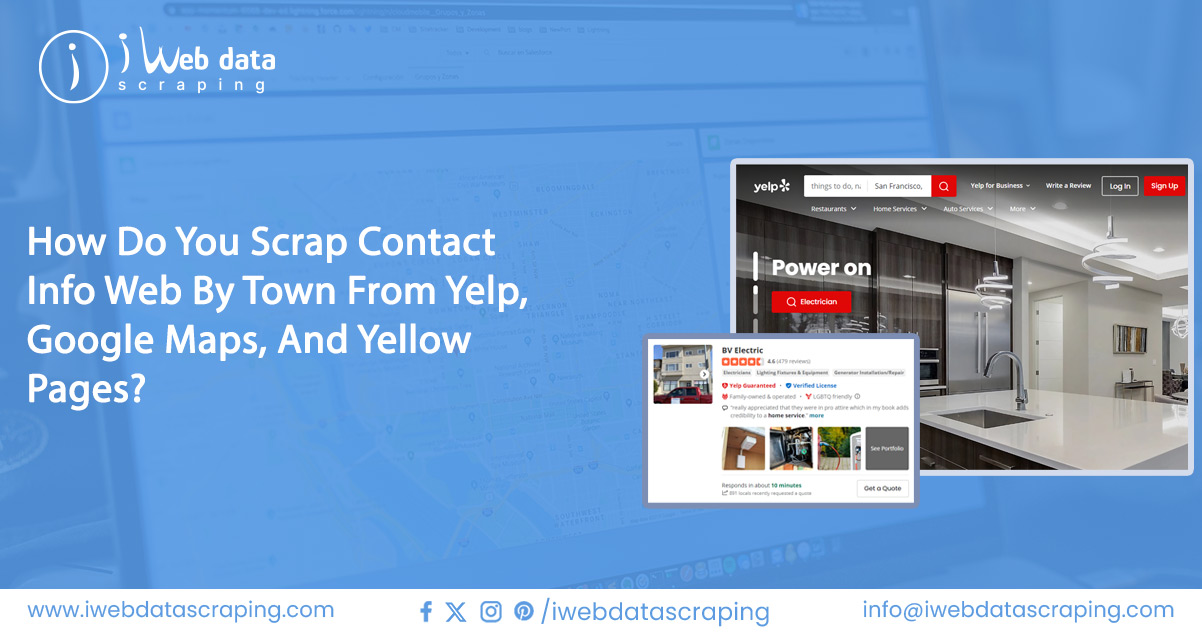
Introduction: In today's era, where data serves as the linchpin of decision-making, the acquisition of accurate and timely contact information stands as a pivotal necessity across diverse sectors, encompassing targeted marketing strategies and expansive research initiatives. Web scraping, a pivotal technique in extracting valuable insights from websites, emerges as a potent tool for gathering such data. This article delves into the intricacies of scraping homeowners' contact information from specific towns, utilizing well-established platforms like Yellow Pages, Yelp, and Google Maps.
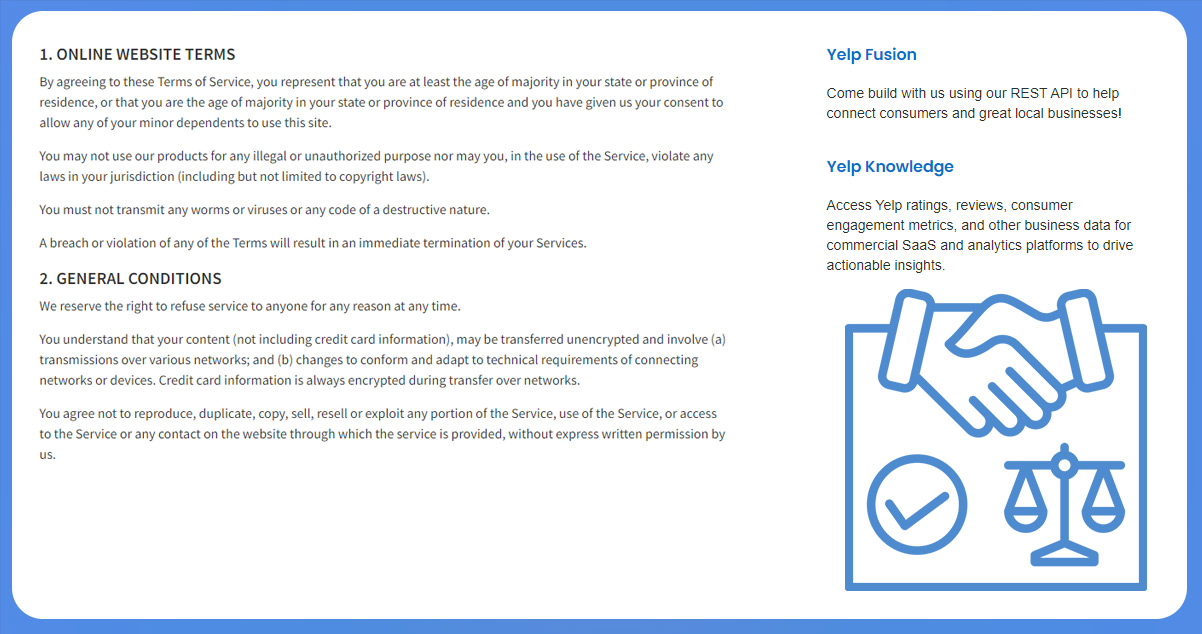
Initiating any web scraping venture mandates a profound comprehension of the legal and ethical intricacies of the process. An essential step involves meticulously scrutinizing the terms of service for each targeted website, ensuring unwavering compliance, as specific platforms may expressly prohibit or impose restrictions on Real estate data scraping activities. Additionally, a conscientious commitment to adhering to privacy laws is paramount, emphasizing the collection of solely publicly available information to uphold ethical standards. This dual commitment to legal compliance and ethical data practices forms the foundation for a responsible and effective web scraping endeavor.
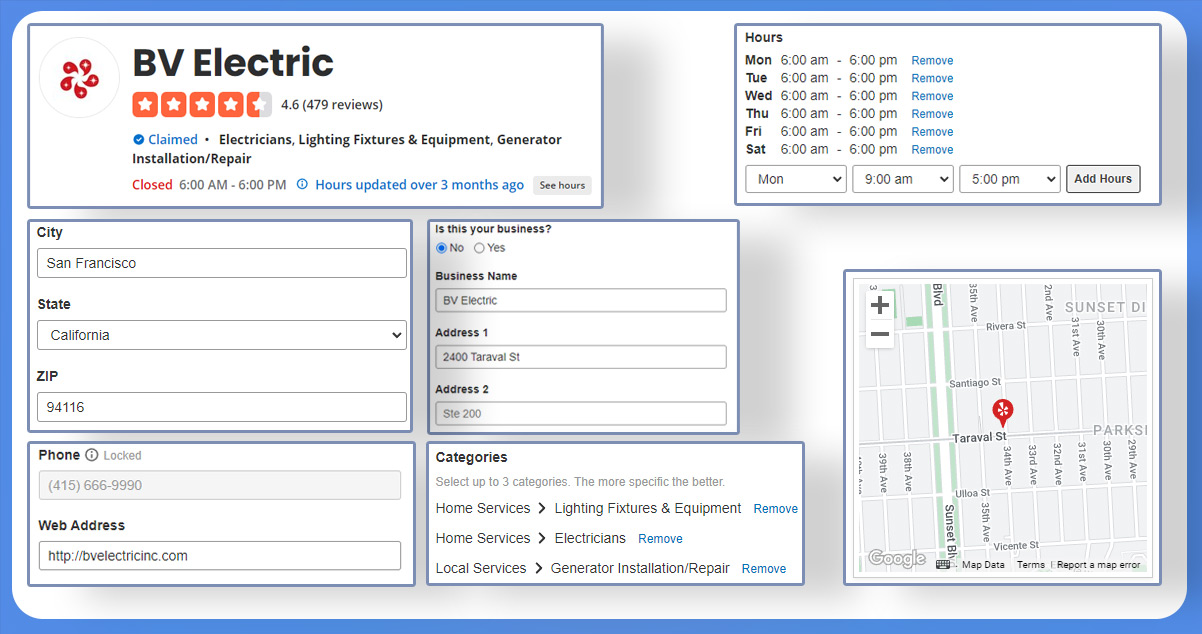
By embarking on the journey of gathering homeowners' contact information through web scraping, it gains enhanced significance when the process can target specific towns. This deliberate approach is not just a procedural step but a strategic imperative that elevates the entire data collection endeavor.
The significance of scraping targeted towns lies in amplifying the relevance and efficiency of the acquired data. The scraping process caters precisely to the intended audience by meticulously identifying specific towns at the outset. This strategic alignment ensures that the extracted information aligns with the selected towns' unique characteristics and contextual nuances, providing a more accurate and actionable dataset.
Moreover, the targeted approach minimizes the risk of information overload and extraneous data. Instead of casting a wide net, focusing on specific towns allows for a more concentrated and insightful collection of homeowners' contact details. This refined dataset, enriched with localized context, not only streamlines subsequent analyses but also enhances the effectiveness of marketing or research initiatives tailored to those regions.
In essence, identifying targeted towns is not just a preliminary step but a cornerstone that imbues the entire web scraping process with purpose and precision. It transforms the act of data extraction into a strategic initiative, where every piece of information gathered holds heightened relevance, aligning seamlessly with the goals of the overarching project.
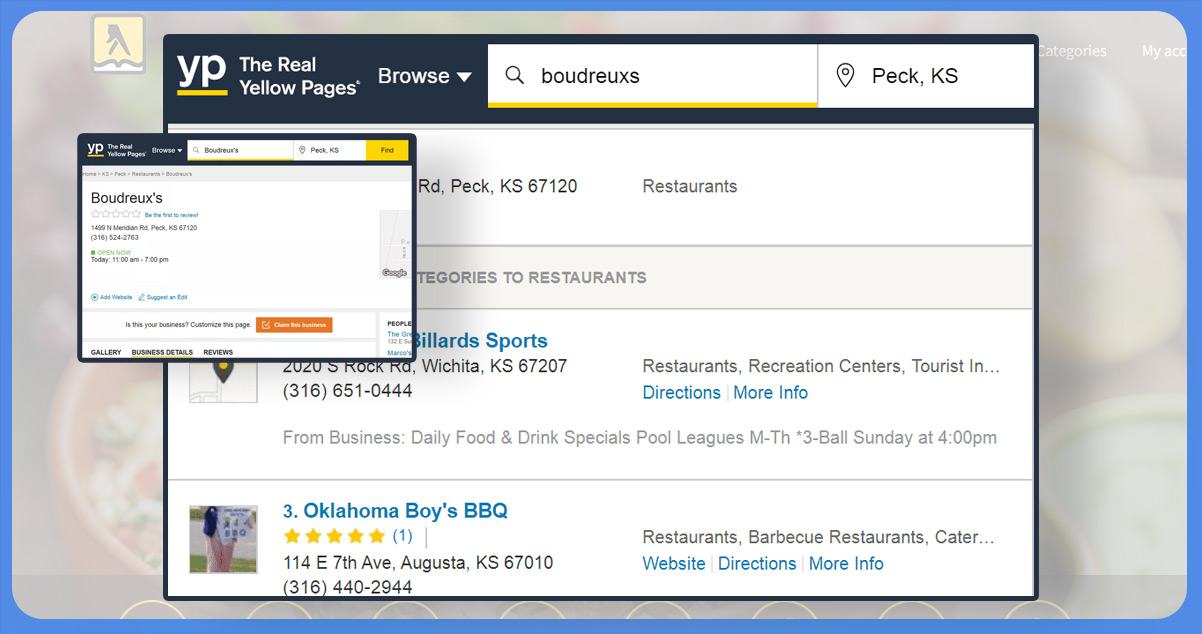
Yellow Pages, a renowned online directory, is a valuable resource for obtaining business information, including contact details for homeowners. It is essential to scrape Yellow Pages data to harness this wealth of data. Below are detailed steps to guide you through the process of scraping homeowners' contact information from Yellow Pages:
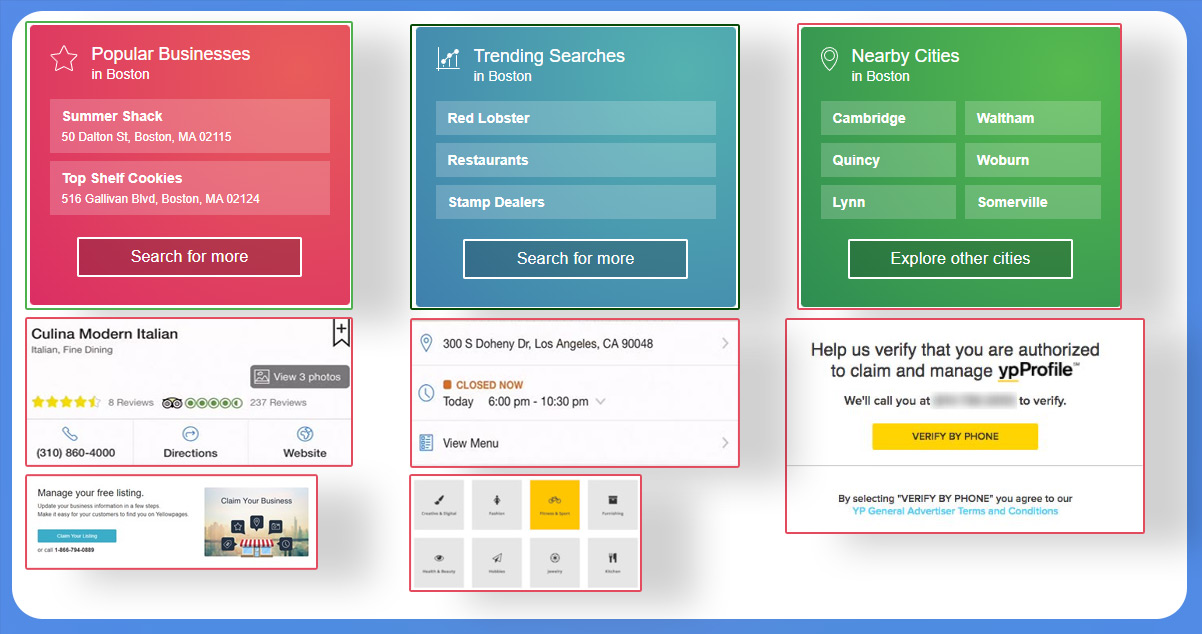
Select Target Categories: The initial step involves strategic category selection. The real estate data scraper navigates to Yellow Pages and choose categories that are likely to include homeowners. Optimal choices may include "Residential Real Estate," "Home Improvement," or similar categories relevant to your data requirements. This selection ensures that the scraping process lies on segments where homeowners' contact information is prevalent.
Use Scraping Tools: Deploying web scraping tools is critical for extracting data efficiently. Tools like BeautifulSoup (a Python library) or Scrapy are famous for their versatility and effectiveness. Customize your scraping tool to navigate the Yellow Pages website systematically. Craft the tool to extract pertinent information, such as homeowners' names and contact details, and organize the gathered data in a structured format for further analysis.
Handle Pagination: Yellow Pages often organizes search results across multiple pages. It's crucial to implement a mechanism for handling pagination. Develop your scraping tool to navigate through the paginated results seamlessly, methodically capturing data from each page. This iterative approach ensures that you navigate the expansive Yellow Pages directory.
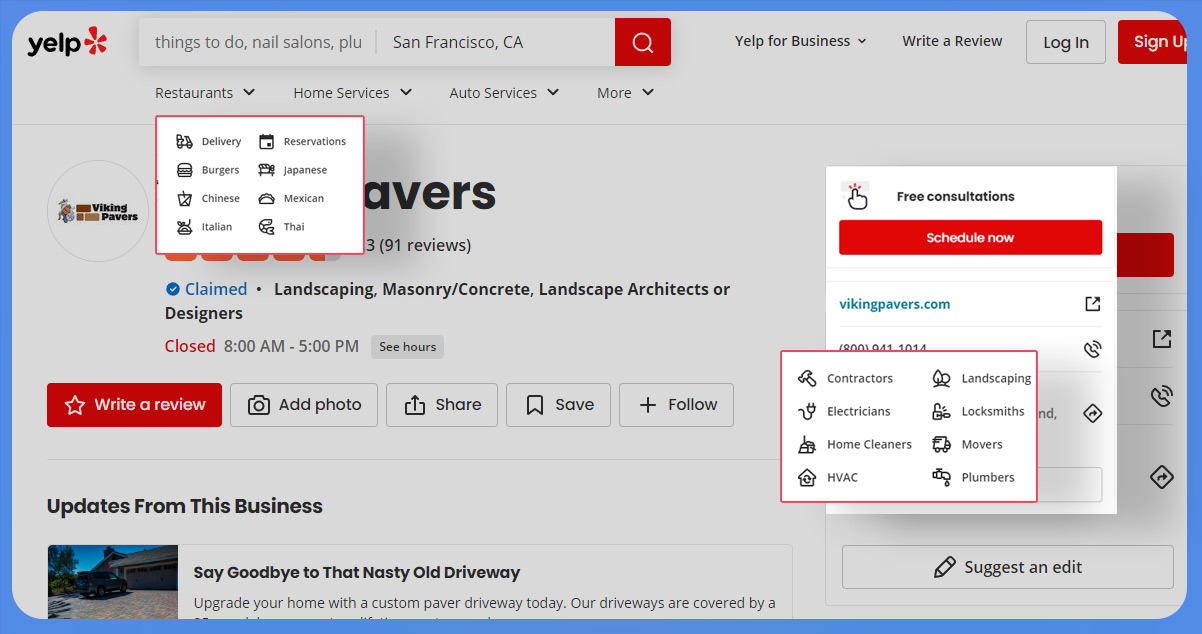
Yelp, a widely used platform for business reviews, extends its utility beyond opinions on local establishments. Scrape Yelp data to serve as a goldmine of information concerning homeowners and local services, making it a valuable resource for targeted data extraction.
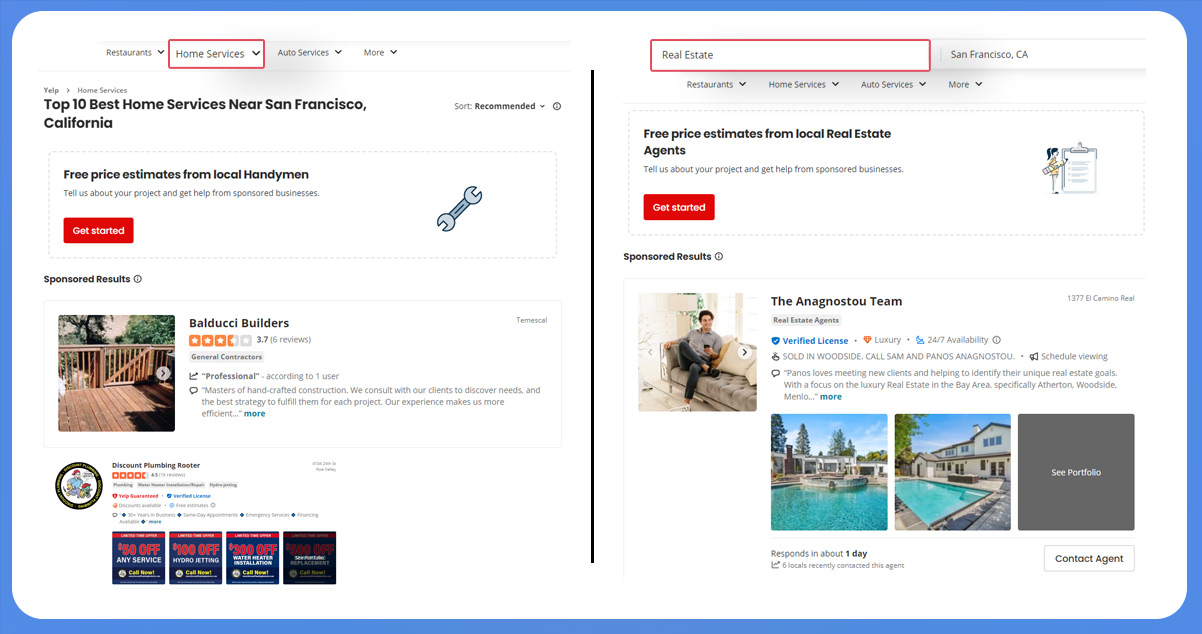
Define Target Keywords: Initiate the scraping process by identifying relevant keywords associated with homeownership. Optimal choices may include "Home Services," "Real Estate," or specific services such as "Plumbing" or "Landscaping." This strategic selection ensures that the scraping efforts are specific to areas where homeowners' information is likely to be abundant.
Utilize API: Yelp offers an API that provides developers with a structured and ethical means to access business information. Leverage the Yelp API to streamline data extraction, ensuring a more systematic and compliant approach. This method not only enhances the accuracy of data retrieval but also aligns with ethical standards set by Yelp.
Handle Rate Limiting: When utilizing the Yelp API, be mindful of rate limits imposed by the platform. Implement robust error-handling mechanisms and strategically incorporate sleep intervals to prevent breaching these limits. This proactive approach ensures a smooth and respectful interaction with Yelp's resources.
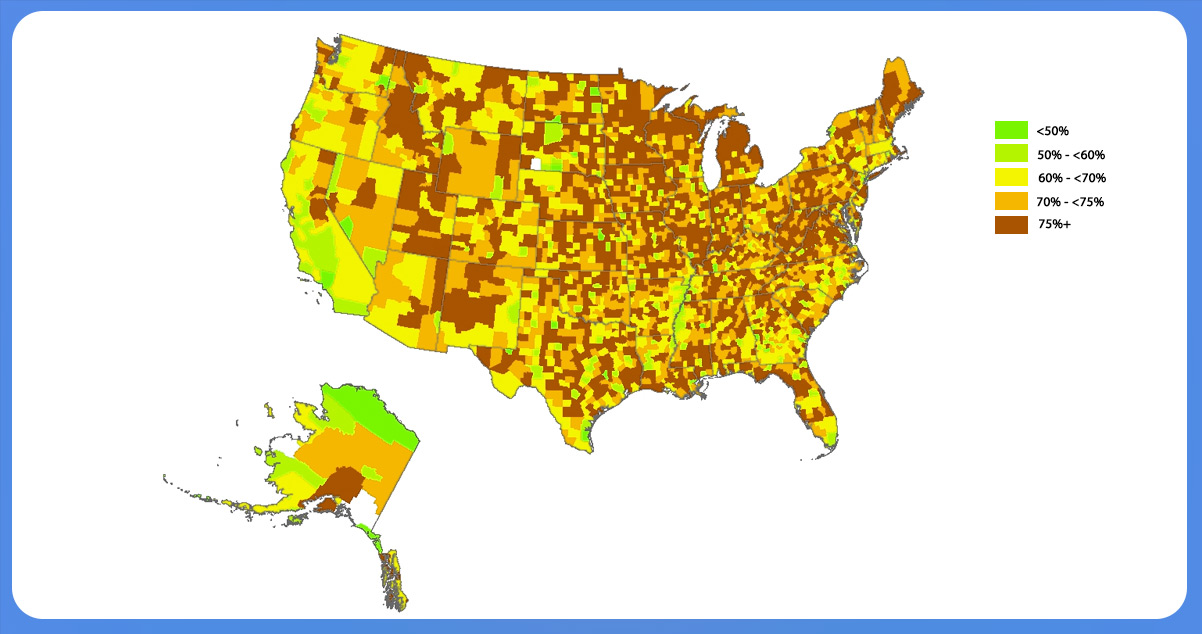
Google Maps stands as a rich source of location-based data, offering a wealth of information about homeowners. To scrape Google Maps data effectively, employ the following detailed steps:
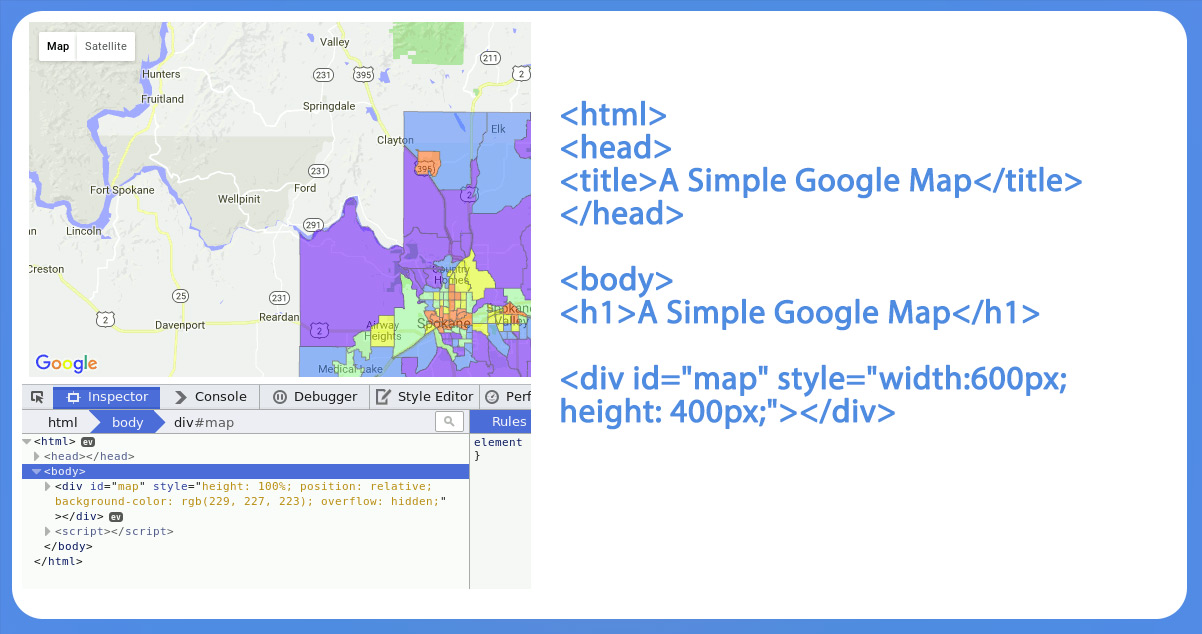
Use Google Maps API: Harness the power of the Google Maps API, particularly the Places API, to gain programmatic access to location-based data. Configure the API to conduct targeted searches for businesses or residences in specific towns, ensuring a comprehensive extraction of homeowners' contact details.
Implement Geocoding: Enhance the precision of location-based searches on Google Maps by incorporating geocoding. This process converts addresses into geographic coordinates, facilitating a more accurate and refined extraction of homeowners' information.
Handle API Quotas: Like Yelp, the Google Maps API imposes usage limits. Monitor your API usage diligently and implement effective strategies to handle quotas appropriately. This conscientious approach ensures sustained access to Google Maps' resources without breaching usage limits.
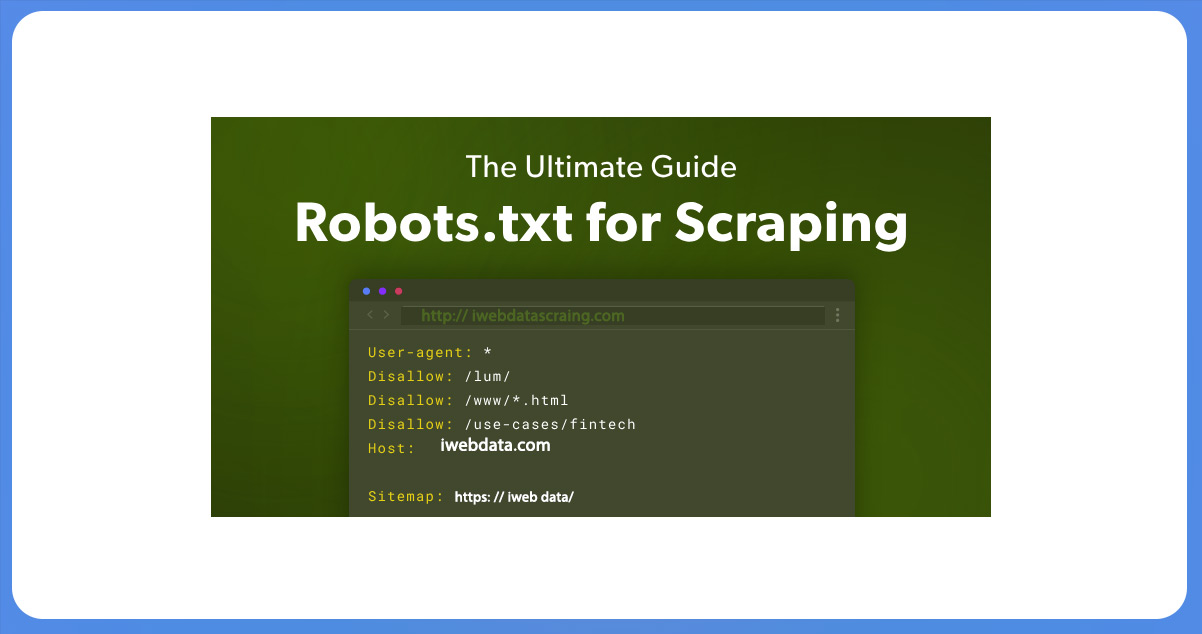
Web scraping is invaluable for extracting homeowners' contact information from platforms like Yellow Pages, Yelp, and Google Maps. However, adherence to best practices is crucial to ensure a responsible and efficient data collection process. Let's delve into the details of these practices:
Before initiating any scraping activity, it's imperative to consult the robots.txt file on each target website. This file serves as a set of guidelines provided by the website administrators, indicating which sections are off-limits for scraping. Respecting these directives is ethical and ensures that your scraping activities remain within the legal and acceptable boundaries set by the website.
The strategic use of proxies is highly advisable to mitigate the risk of IP blocking and enhance anonymity during the scraping process. Proxies act as intermediaries between your scraping tool and the target website, preventing direct exposure to your IP address. It helps maintain a low profile and safeguards against potential restrictions imposed by websites wary of frequent requests from a single IP address.
By recognizing the dynamic nature of homeownership information, it's imperative to implement a systematic schedule for updating your dataset. Homeownership details can change frequently due to various factors such as property transactions, renovations, or changes in ownership. Regular updates ensure that your dataset remains accurate and reflective of the current landscape, enhancing the information's reliability.
In conclusion, while contact info web scraping by Towns presents a powerful avenue for acquiring valuable homeowners' contact information, ethical considerations must remain at the forefront of the process. Upholding privacy laws and adhering to the terms of service of each platform is essential for maintaining integrity throughout your scraping endeavors. By diligently following the outlined best practices, you can streamline the data collection process and establish a foundation of trust and ethical responsibility. Stay informed about any changes in website policies, and be prepared to adjust your scraping methods accordingly to ensure a sustainable and ethical data collection process over time.
Please contact iWeb Data Scraping for a comprehensive range of data services! Our committed team is ready to assist you, whether you need web scraping service or mobile app data scraping. Contact us today to discuss your specific needs for scraping retail store location data. Let us showcase how our customized data scraping solutions can deliver efficiency and reliability tailored precisely to meet your unique requirements.